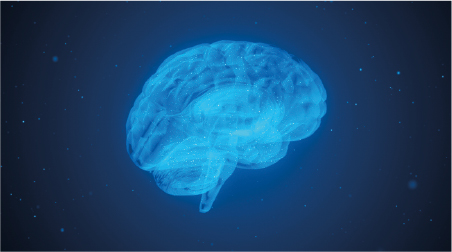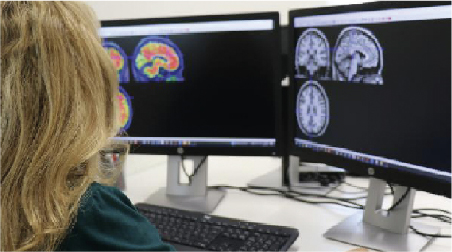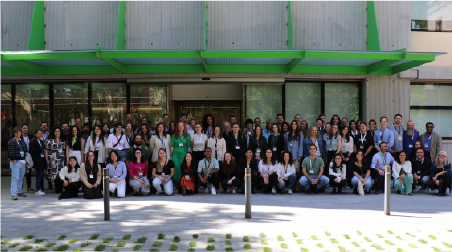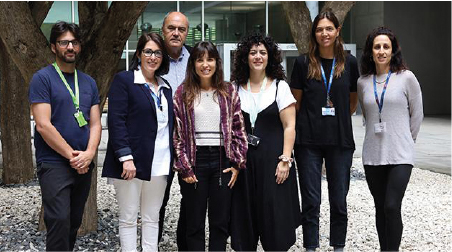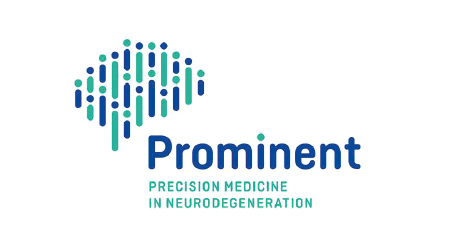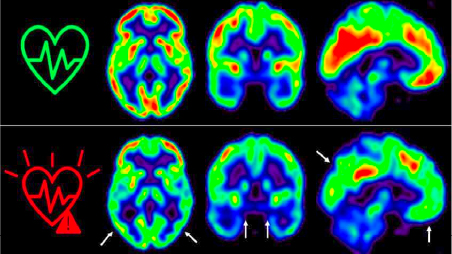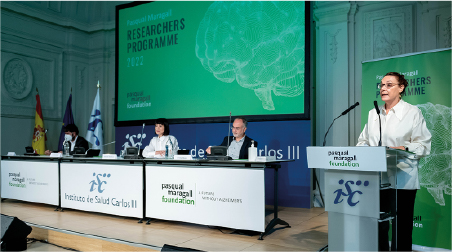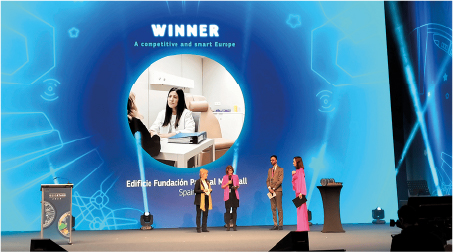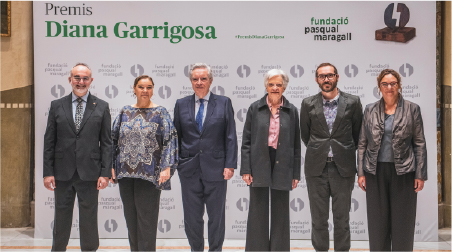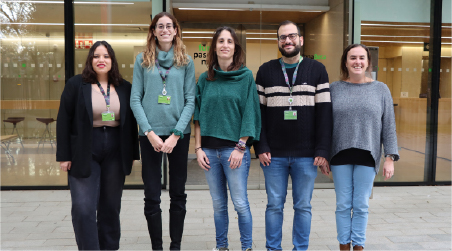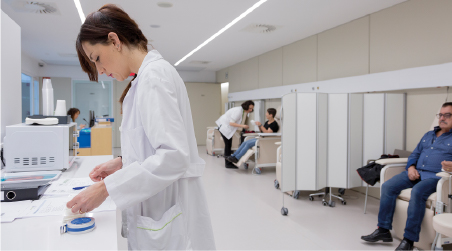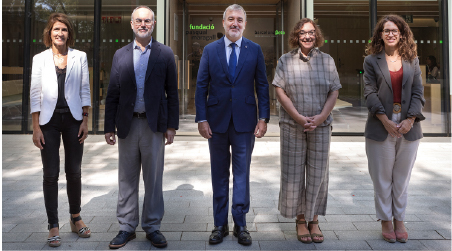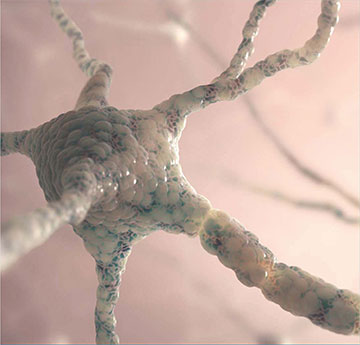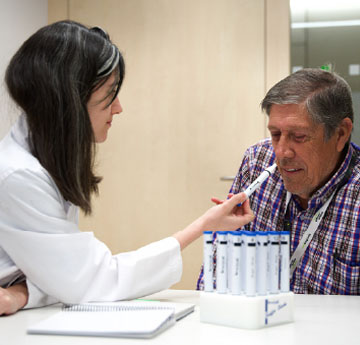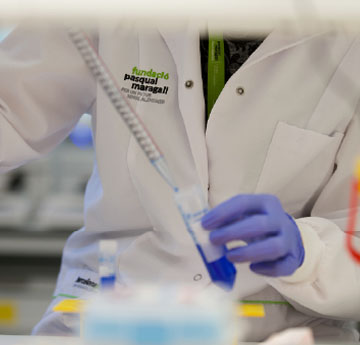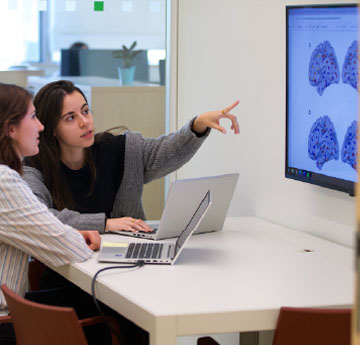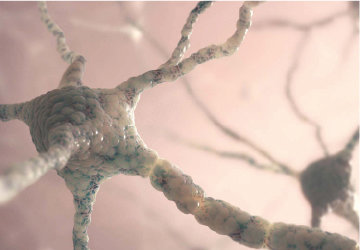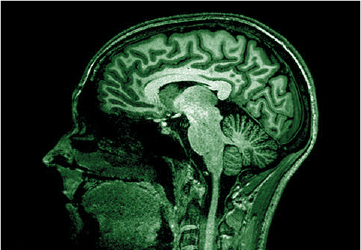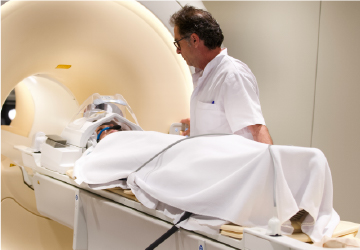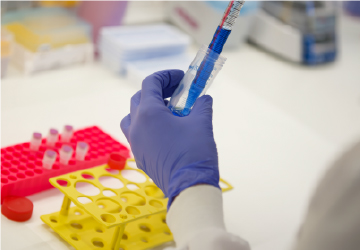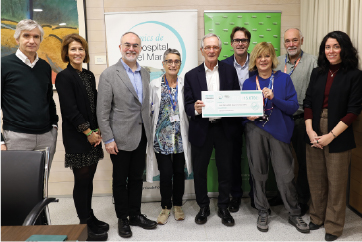
Alfa Study
The Alfa study is a research platform to characterise the pathophysiology of Alzheimer's disease in its preclinical phase and develop preventive treatments. It was launched in 2013 with the support of “la Caixa” Foundation. It is one of the most complex initiatives and with the largest number of research participants in the world, made up of 2,743 people between the ages of 45 and 75, most of whom are sons and daughters of people with Alzheimer's.
The Alfa study is a strategic infrastructure for research on the prevention and detection of Alzheimer's risk factors. A large part of the studies developed at the BBRC are nourished by the data it generates. The exhaustive characterization of the participants turns Alfa into a valuable research structure for conducting prevention clinical trials.
2.743
People between the
ages of 45 and 75
HeBe
The aim of HeBe is to identify blood factors that have a rejuvenating or aging effect on the human brain.
The results will improve the diagnosis of Alzheimer's disease or other neurodegenerative diseases in their earliest stages. They will also be useful for detecting people more susceptible to developing these diseases, predicting their prognosis, monitoring their progression and the effectiveness of a possible treatment.
This project receives funding from the European Research Council (ERC) within the framework of the European Union's Horizon 2020 research and innovation programme (grant agreement no. 948677).

Alfa+
Alfa+ is a cohort, prospective and observational study that aims to describe the biological processes and identify factors that can predict the preclinical phase of Alzheimer's disease.
Thanks to the extensive characterization of 420 participants without cognitive impairment, from the Alfa study, the Alfa+ analyses the association between biological, structural, functional and neurocognitive brain markers that characterise the preclinical phase of the disease and describe its natural history. It is supported by the Adey Foundation

PROAD
The PROAD project aims to identify proteomic profiles in blood that can predict cognitive decline in cognitively healthy people with an increased risk of developing Alzheimer's.
With this study, in which plasma samples from the Alfa+ cohort will be analysed, the BBRC team hopes to be able to find new prognostic biomarkers in the preclinical phase of the disease.
AlfaSleep
The aim of the AlfaSleep project is to characterise sleep patterns with subjective and objective measures in middle-aged adults without cognitive impairment and with an increased risk of developing Alzheimer's in the future, and relate them to biomarkers and state-of-the-art neuroimaging data.
Thanks to its multimodal approach and the study participant cohort, enriched by risk factors, the project will contribute to the understanding of the mechanisms underlying the association between sleep and cognitive impairment.
Thus, the project aims to develop non-invasive biomarkers and preventive strategies aimed at sleep. AlfaSleep has the participation of 200 people from the Alfa+ cohort.
NeuroCOVID
This study, funded by La Marató de TV3 Foundation and lasting three years, investigates the neurological effects of Covid-19 in people with different risks of developing Alzheimer's.
To this end, the researchers use mini-brains as an analytical and predictive model, customised organoids of human brains, from participants of the Alfa cohort, and subjected to different traumas, including SARS-Cov2 infection.
PROSPECT-AD
Speech impairments are a feature of the early stages of Alzheimer's disease and, consequently, the analysis of speech performance is a promising new digital biomarker for the detection of the disease.
The aim of PROSPECT-AD is to validate speech biomarkers for the identification of individuals with early signs of Alzheimer's and monitor them longitudinally.
In addition, digital biomarkers of language and speech open the door to screening methods for populations at greater risk of suffering the disease at very early stages, necessary for future clinical trials on Alzheimer's disease modifying drugs. PROSPECT-AD collects data from participants from European cohorts , 100 of them from the BBRC Beta-AARC study.
Beta-AARC
The project 'Beta-AARC: Cohort study for the identification of blood biomarkers in the population with subjective cognitive decline', underway from 2021, deepens the knowledge of the factors that influence the onset of Alzheimer's disease and the detection of biomarkers to identify people at increased risk of developing the disease before the first symptoms appear.
It is a cohort study that will include approximately 200 people aged between 55 and 80 who experience a subjective deterioration of memory or other cognitive abilities, such as attention, planning ability and orientation.
The Beta-AARC study is supported by ACS Foundation, Condis, EDM, La Sirena and the Ramón Areces Foundation.












